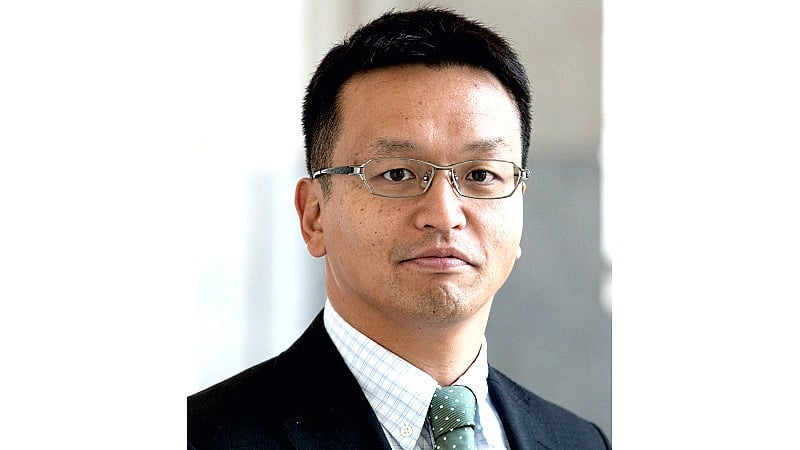
In a speech delivered by President of the State Affairs Commission Kim Jong-un at the “National Meeting of Reviewing the Emergency Anti-Epidemic Work” held on August 10 in Pyongyang, the North Korean leader proclaimed that “the epidemic crisis has been entirely eradicated.”
Coming just three months after Pyongyang first acknowledged an outbreak of COVID-19 on May 12, it was a premature declaration of victory over the epidemic.
There is no guarantee that the number of infections will remain zero.
The statement only indicates that the state has downgraded from a “top-level emergency anti-epidemic system” to a “normal epidemic prevention work system.”
In other words, North Korea has switched to living with the coronavirus, clearly indicating the limits of the country’s isolated economy.
On May 14, Kim Jong-un called the spread of the disease a “great turmoil in our country since its foundation,” asserting that “the crisis can be overcome [when the country] maintain[s] the strong organizing ability and control based on the single-minded unity of the Party and the people and strengthen[s] the anti-epidemic struggle.”
This may be said to have already heralded a “declaration of victory.”
The first point to note at the National Meeting was the suggestion that Kim Jong-un himself had become infected with COVID-19.
The North Korean leader’s sister Kim Yo-jong, Deputy Department Director of the Workers’ Party of Korea, announced that Kim Jong-un was “seriously ill with a high fever.”
The people of North Korea are facing extremely challenging circumstances due to an impoverished economy as a result of years of economic sanctions and two-and-a-half years of strict quarantine policies.
Severe flood damage in the country has further exacerbated the situation.
However, suffering is not confined to the people. The Great Marshal Kim Jong-un himself asserted that he had taken measures to address the situation despite being afflicted by a severe fever, thereby demonstrating leadership and the “single-minded unity” of the Party and the people.
The second point to note was Kim Yo-jong’s scathing criticism of South Korea as the “frantic enemy intent on suffocating our state” by introducing the infectious disease.
The logic behind this criticism is that the people of North Korea are suffering as a result of the economic sanctions imposed by “US imperialism and its followers (Japan and South Korea),” and the blame for the virus lies with South Korea not the government, much less the supreme leader.
This was the first time Kim Yo-jong’s voice had been broadcast on North Korean TV, a fact which alone demonstrates the significance of the “declaration of victory.”
Kim Yo-jong concluded that it was “leaflets, banknotes, awful booklets” and other items originating in South Korea that were responsible for the virus entering the country.
Groups of defectors in South Korea have been flying leaflets denouncing the Kim Jong-un regime across the border to North Korea attached to large numbers of balloons.
Other methods of enticing North Koreans to engage with the contents included attaching one US dollar bills. Given that the monthly income of North Koreans is equivalent to between one and two US dollars, a one US dollar bill has significant value.
The claim that the virus entered the country on leaflets from South Korea, rather than from China with which it shares a 1,400-kilometer border and conducts more than 90 percent of its total trade, is the kind of rhetoric typical of North Korea.
Pyongyang cannot blame China for its current predicament since it is the only country able to assist North Korea in its time of need.
Moreover, Kim Jong-un was incensed that his boast about zero COVID-19 cases for more than two years had finally been exposed as false, resorting to this ruse in desperation to avoid directing his ire toward officials in charge of trade and other departments.
When it comes to who devised such a well thought-out plan, however, the policy-making process is opaque.
Kim Yo-jong warned South Korea of a “strong retaliatory response,” while refraining from making any mention of particular incidents such as the June 2020 bombing of the North-South joint liaison office.
Kim Jong-un, on the other hand, made no mention of South Korea whatsoever in his speech. Kim Yo-jong’s harsh remarks should therefore be seen as having the sole purpose of promoting unity within the country, warning people not to touch any matter that comes floating in the air from South Korea, and urging the Yoon Suk-yeol administration to clamp down on leaflets that criticize Pyongyang.
Several days after the National Meeting on August 10, Kim Yo-jong issued a statement completely rejecting President Yoon’s “bold plan” that called for the “denuclearization” of North Korea.
North Korea is a proud nation that despises South Korea’s condescending attitude.
However, with the 20th National Congress of the Chinese Communist Party scheduled for this fall in Beijing, it is likely that until then at least Pyongyang will exercise restraint with regard to large-scale provocative actions that could damage President Xi Jinping’s reputation.
While North Korea undoubtedly intends to carry out a nuclear test, it continues to closely monitor the mood in Beijing to ensure that the timing is right.
(Atsuhito Isozaki is Professor at Keio University, Japan.)
ADVERTISEMENT
ADVERTISEMENT








































